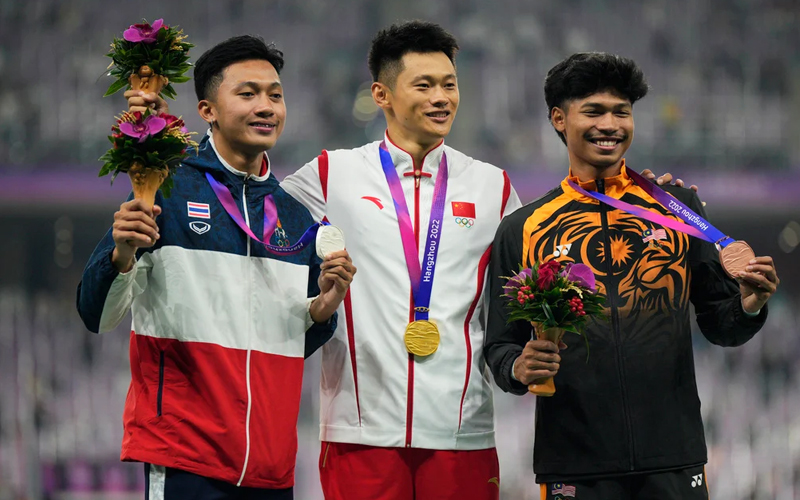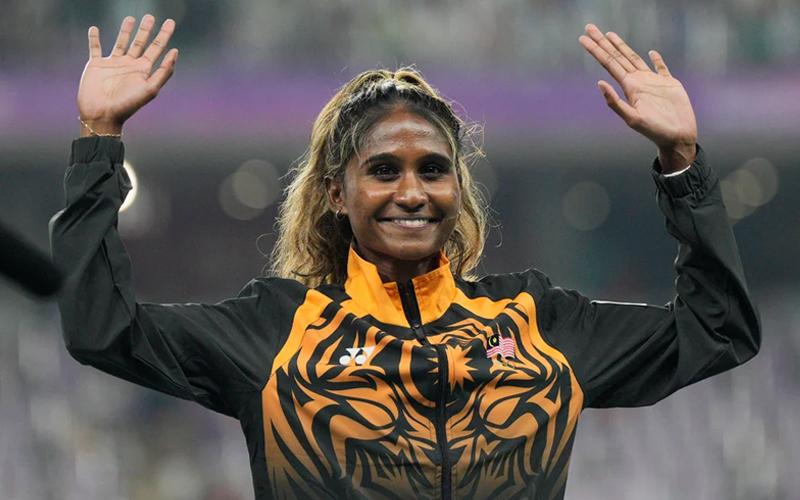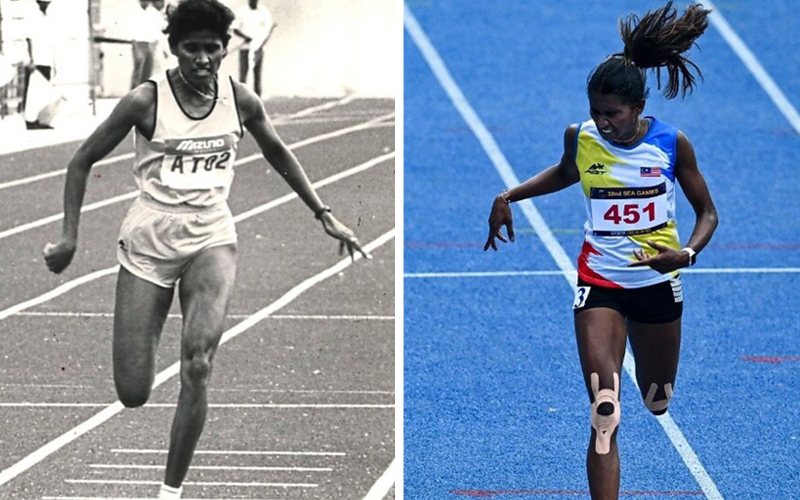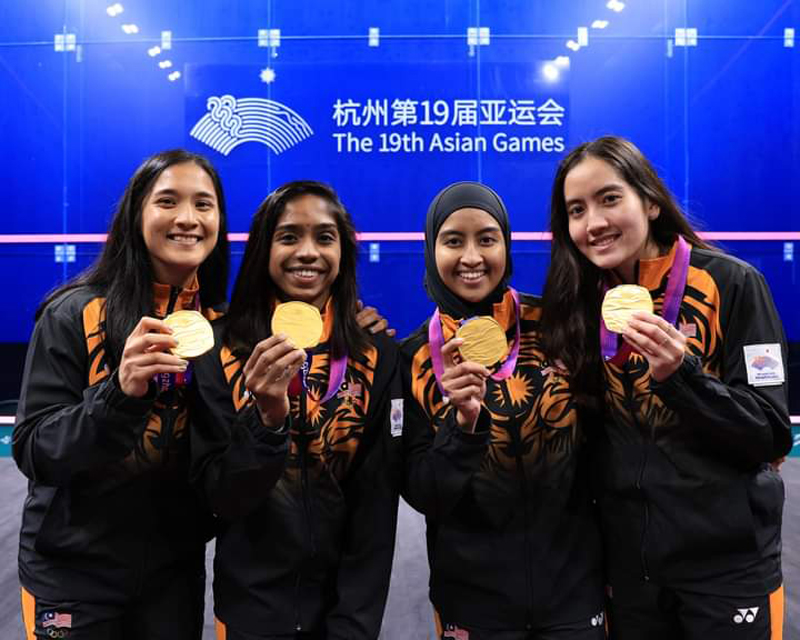
PETALING JAYA: For Malaysian athletics, what looked like it might be a painful Asian Games blossomed yesterday in Hangzhou, China.
US-based sprinters, Azeem Fahmi and Shereen Samson Vallabouy finally ended a long barren run in athletics with a bronze each in the men’s 100m and women’s 400m, respectively.
The young athletes have reached new heights, and the sprints sparkle is back in Malaysian athletics.
Day seven of the Asiad also saw Sharul Aimy Kamaru Hisam ending the country’s 17-year medal drought in gymnastics by taking bronze in the men’s vault final.
Divers Syafiq Puteh and Ooi Tze Liang added to the medal joy with a bronze in the men’s synchronised 10m platform, Malaysia’s first medal in the event after nine years.
Their efforts, and that of the women’s squash team who won gold, have to an extent quelled the sharp criticism Team Malaysia had endured since the start of Asiad 2023.
Malaysia last won medals in athletics at the 2006 Asian Games in Doha, Qatar, through pole vaulter Roslinda Samsu (silver) and 400m hurdler Noraseela Khalid (bronze).
We unpack some things about the Malaysian athletes who exceeded expectations.
Azeem’s cracking run
The 19-year-old, who holds the national 100m record of 10.09s, had never won anything on the international stage, and did not expect a podium finish.
But he surprised himself and everyone, clocking 10.11s to finish behind China’s Xin Zhenye (9.97s) and Thailand’s Boonson Puripol (10.02s).
He wrote a new chapter in Malaysia’s track history, ending the country’s 41-year wait for a men’s 100m medal at the Asian Games.
The last Malaysian to win a 100m medal was Rabuan Pit, who took gold in 10.68s at the New Delhi Games in 1982, beating South Korean Jang Jae-keun and Thailand’s Suchart Jaisuraparp.
Rabuan also clinched the bronze in the 200m (21.25s) behind Jang and Toshio Toyota of Japan, and his medals were the only ones for Malaysia from athletics at the Games in 1982.
After the race, Azeem said the bronze meant everything to him and that he will strive to win a medal in the 200m as well.
Super Shereen
Shereen’s American coach, Derrick White, said she executed her race well, and had to fight in the home stretch.

The 25-year-old Sea Games champion could not match the two Bahraini runners who made it a 1-2 finish, but a surge in the final 200m saw her come in third in 52.58s.
“She pulled her hamstring two weeks ago, but she trusted the rehab and proper treatment. The fact that she still went out there, determined to run for her country, speaks volumes of her maturity,” he said.
The Florida-based speed coach said he was not disappointed with her timing which is slower than her national mark of 51.80 “as what she has achieved in a few months is amazing”.
Not since Junaidah Aman’s 400m bronze at the 1974 Tehran Asian Games has any Malaysian woman quarter-miler stood on the podium.
In Iran, Junaidah clocked 55.78s behind Singapore’s Chee Swee Lee (gold, 55.08s) and Nobuko Kawano of Japan (silver, 55.59s).
Her medal and Ishtiaq Mubarak’s silver in the men’s 110m hurdles were the nation’s only medals at the Games in 1974.
Mother and daughter prowess
Shereen matched the feat achieved by her mother, Josephine Mary, as an Asian Games medallist.

Josephine has two Asian Games bronze medals to her name. She won the first in the 800m in 1986 in Seoul, and the 4x400m four years later in Beijing.
“To say I’m proud is an understatement,” said a beaming Josephine, who together with her husband, Samson and Shereen hold seven national athletics records and one regional mark.
Watching the race itself on television with her family in Ipoh, however, was a less pleasant experience.
Josephine said she was worried as Shereen had a hamstring problem recently, after having earlier suffered a neck injury. “Thank God, she recovered to do the nation proud.”
Girl power
Many welled up at the wild ecstasy on the faces of the courageous squash players when they won the women’s team gold medal yesterday.
We were humbled by the talent and captivated by the style of S Sivasangari, Rachel Arnold, Aifa Azman and Aira Azman.

Sivasangari, who some thought would never play the sport again after a car crash last year, inspired the team to a 2-1 victory over defending champions Hong Kong.
The 24-year-old said she felt grateful to be still playing squash at the highest level after the road accident.
“A year ago, I didn’t think I would be here. To be playing at the Asian Games is a blessing,” she told reporters.


